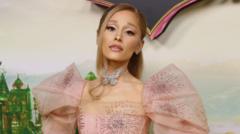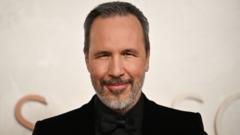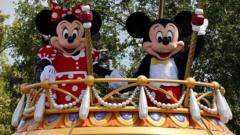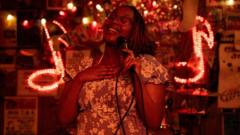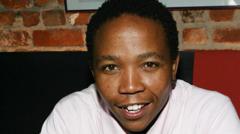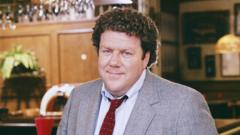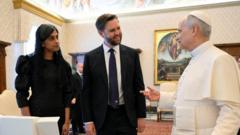As the Vatican gears up for the upcoming papal conclave, the film 'Conclave' serves as an insightful exploration of the election dynamics, highlighting the strategic maneuvering, human emotions, and profound responsibilities that accompany this ancient ritual.
"Unveiling the Secrets: How 'Conclave' Reflects the Papal Election Process"
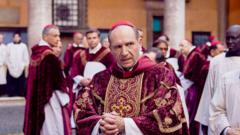
"Unveiling the Secrets: How 'Conclave' Reflects the Papal Election Process"
The film 'Conclave' offers a captivating look into the intricate and confidential world of how popes are selected, resonating with imminent real-world implications as the Vatican prepares for a pivotal election.
The recent film "Conclave," now a box office success, brings to light the complex and secretive mechanisms behind the election of a new pope. Set against the backdrop of a papal election without a clear frontrunner, the film provides viewers with a unique window into the unwritten rules of the Vatican's conclave, a process steeped in tradition and mystery.
Scheduled for May 7, the upcoming conclave will see 134 cardinals gathered in the Sistine Chapel, where they will engage in the time-honored ritual of electing the successor to Pope Francis. The world will not know the outcome until white smoke is seen rising from the chimney, signifying the selection of the new leader of the Roman Catholic Church.
One key aspect of the film, adapted from Robert Harris's bestselling novel, is the portrayal of cardinal-electors in isolation during the election process. Historically, this self-imposed seclusion aims to guard against external influences. However, as noted by theologian Stephen Bullivant, while they are secluded, they still require basic sustenance.
This balance between isolation and the demands of modern transparency paints a vivid and introspective picture of the intense responsibilities faced by the cardinals, as articulated by Anna Rowlands, a professor of Catholic social thought. The film explores the claustrophobic environment where power struggles and strategic alliances unfold. "The narrative is layered with the internal conflicts and ambitions of the cardinals," says Nick Emerson, the film’s editor.
Moreover, 'Conclave' introduces a twist with an obscure cardinal thrown into the mix, raising questions about eligibility and also mirroring the unpredictability of the current papal landscape. With roughly 80% of the eligible voting cardinals appointed by Pope Francis himself, their diverse backgrounds and the potential for differing viewpoints add to the uncertainty surrounding the election.
The film effectively humanizes these senatorial figures, illuminating their vulnerabilities and aspirations, as described by director Edward Berger, "It's not solely an ancient ritual; these cardinals grapple with contemporary challenges and personal flaws."
Thus, 'Conclave' affords audiences a rare chance to witness the frailty and ambition involved in one of the most significant decisions faced by the church, underscoring that while the conclave serves a divine purpose, it is intrinsically linked to human experience. As the real-life conclave approaches, the interplay between tradition and modernity continues to captivate public interest, bridging the gap between fiction and reality.

